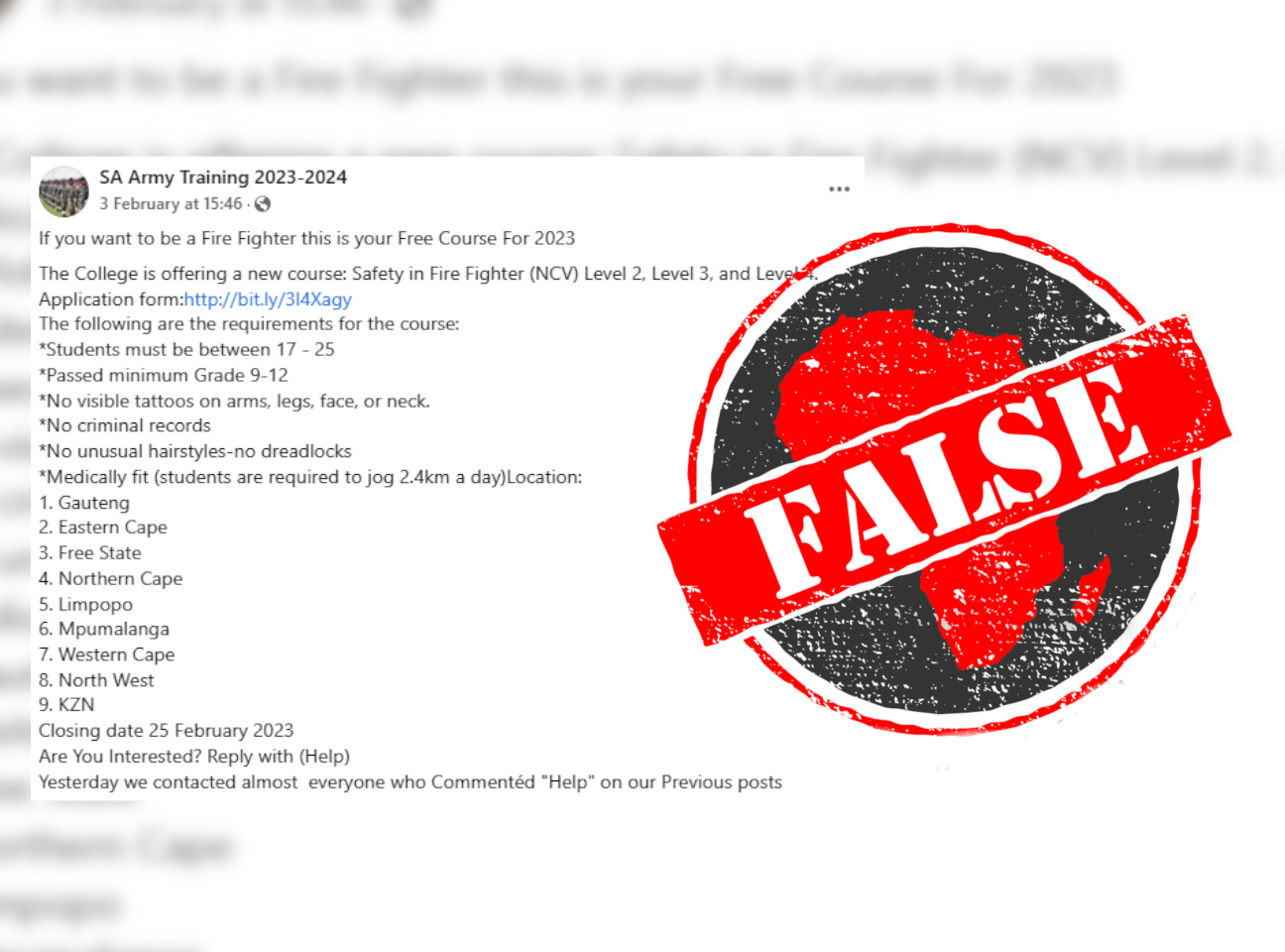IN SHORT: South African job-seekers should steer away from Facebook posts offering opportunities in the correctional services.
South Africans looking for opportunities online may have come across some promising ads on Facebook, posted by a page called SA Army Training 2023-2024.
With over 100,000 followers, the page lists training and learnership opportunities for various careers, including firefighting, nursing and policing.
One post advertising a learnership in correctional services has been shared over 1,200 times.
Those interested in the training opportunities are encouraged to apply online, using the link provided, or to send a private message.
But there are a number of red flags in these posts which suggest the training opportunities are not legitimate. We took a closer look.

Signs of a scam
Africa Check’s guide to Facebook scams and how to spot them explains some of the characteristics shared by pages hoping to scam people.
The first of these is that these pages are often “badly written”. There are numerous spelling and grammar mistakes in the posts on the page, which is unprofessional and would be highly unlikely if the ads were legitimate.
Second, the posts all link to the same website, unrelated to any of the companies or government departments supposedly offering training. It is also an unprofessional-looking basic weblog, unlike most legitimate career portals.
Those who have expressed their interest in training opportunities by commenting on the posts are told they have been “selected” but first need to share the information with 14 other Facebook groups. After this, they should send their phone numbers to receive a call about the training, the posts say.
This is a third red flag. Encouraging social media users to share is an example of engagement bait. The more people that do this, the greater the Facebook page’s reach.
When you see an opportunity advertised on Facebook, avoid giving personal information such as your cell number in the comments and make sure that the link provided takes you to an official website.
For more information, read our guide on how to avoid being scammed on Facebook.
Republish our content for free
For publishers: what to do if your post is rated false
A fact-checker has rated your Facebook or Instagram post as “false”, “altered”, “partly false” or “missing context”. This could have serious consequences. What do you do?
Click on our guide for the steps you should follow.
Publishers guideAfrica Check teams up with Facebook
Africa Check is a partner in Meta's third-party fact-checking programme to help stop the spread of false information on social media.
The content we rate as “false” will be downgraded on Facebook and Instagram. This means fewer people will see it.
You can also help identify false information on Facebook. This guide explains how.


Add new comment